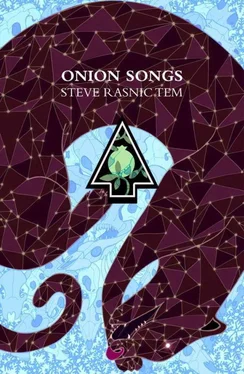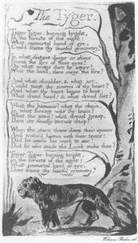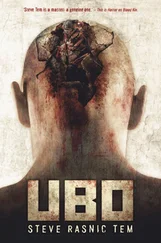Terry felt dumb. He’d never thought of himself as working for this creature. In truth he worked for his family, to keep them fed, clothes on their backs, roofs over their heads, to keep them comfortable, and hopeful.
He thought all these things, but what he said was “Almost six years.”
The lips pursed, and their undersides adhered to the too-large teeth so securely it appeared they would tear when the head started to speak again. “You have completed so many reports, haven’t you? Thousands. You have contributed. So many hours.”
Terry didn’t know what to say. Was this an accomplishment? Was this a compliment? All he could do was grin, but he had no choice, did he? His clown face grinned for him. And the great clown head of his boss grinned back.
The commute home was always the worst. If you wanted a leisurely drive of sightseeing, you didn’t go out on the highway at rush hour. Clowns rolled out of every passing street in their bright funny cars, all of them heading, it seemed, in the same direction, but not everyone lived in the same direction, did they? He could never make sense of it. Clowns cursed and clowns collided, raising their fists and shouting “Bozo!” out their windows, all of them already home in their minds, with only this inconvenience of concrete, metal, and asphalt, this maddening delirium of transit, in their way.
“I believe I got a raise today,” he said with a slight hoarseness, raising his fork as if it signified his turn to speak. “They must be very pleased with my work. Delicious roast beef, by the way.”
His family said nothing, quietly staring. Little Jane appeared to have been crying. His wife leaned over to him, whispering harshly, “Terry, you should have changed for dinner, don’t you think?”
He turned his head to her, not sure exactly what she was trying to say. He looked over at Dwight, who looked back at him out of an angry and defiant mask of red and blue, the edges attached to his skin with safety pins. Then he turned to Jane, whose tears started up all over again. “What’s the matter, sweetie?” he asked. “You’re not scared of clowns, are you?”
He could feel the lower half of his face stretching. He could feel the skin around his mouth cracking. “It’s the smile, isn’t it?” he asked, and thought he might start crying himself. “It’s the smile that will kill you every time.”
Strangeness, n. In particle physics a quantum characteristic used to describe certain short-lived particles and their transformations when interacting with other particles.
Short-lived particles . Trish looked up from the dictionary at Martin. A half hour ago she’d had to tell him that his best friend from college had dropped dead from a heart attack the previous week. The man’s much younger wife had phoned with the news. She hadn’t provided many details—she’d said she had so many of these calls to make—she just thought Martin would like to know. “Like” seemed cruel in such a circumstance but what word should she use? Want? No, there had been no history. Absolutely none. The woman had skirted around the precise circumstance and Trish, guiltily, had just naturally assumed sex had been involved. A transformation having taken place when two short-lived particles interacted. The result being this alien state, this strangeness, the lights dimmed, no one left at home.
Martin appeared to be taking the news with equanimity. “He was never in the best of health,” he said softly, but would not look away from the television. It was one of those reality shows; Trish wasn’t sure which one. People yelled at each other quite a bit on those shows—more than she herself had ever experienced, although she knew this was probably normal behavior in some parts of the world. Then someone was voted out of the house, off the island, into the plastic box suspended from a crane, or whatever.
She waited to see if he had more to say, if he needed her comfort in any way. This man had been Martin’s best friend for many years. But Martin had barely reacted—it might as well have been some stranger on the news who died.
Strangeness had been coming into her life for years—now at last it had fully arrived, courtesy of Martin, her husband of twenty-six years. Did men undergo a change of life? Angie once said “The difference between men and women is that men go through a menopause every five years.” Angie was on her third marriage, this time to Harry, a small man who hid part-way behind her at all social occasions.
It was that sense of strangeness that had driven Trish to open a dictionary for the first time in probably ten years. Not even for Scrabble—if she had to look it up it probably wasn’t a word she’d feel comfortable using. The dictionary had been hard to find, pushed to the back of a bottom shelf in a corner of this basement rec room shared by Martin’s big old TV and assorted storage. Not much “rec” had occurred in this house for years, not since Molly had grown up and moved away to a series of eastern towns, none of whose names she could recall.
The top edge of the dictionary had been covered by a thick bed of dust, and curlicues of someone’s long hair—whose she could not imagine. She and Molly had always worn theirs short. Maybe it’s angel hair , she thought, chuckling, scrubbing off the book before daring to open it. But angel hair was a pasta—who would eat this? Of course there were poor people and people a world away whose lives she could not begin to imagine, but that was making her sad, so she derailed that train of thought.
She peeled the pages back carefully, looking for bugs. If she found any she knew she would just throw the dictionary across the room and then that would be the end of this little project.
Along the way to the ‘S’s she’d stopped now and then to look at a word—cynosure, destructionist, hydromancy, placebo, resistivity. The dictionary was like the estate list her mother had of what had been in her grandmother’s attic at the time of the reading of her will. So these are the things in grandmother’s attic, which we don’t use anymore, although once they had been important in our lives. These are things she had but which she doesn’t have anymore, her being dead, and which we don’t have, our having sold them. This is just a list of what used to be in that huge empty attic up there—this is all we have to remember them, and our grandmother, by.
That list had been no more substantial, really, than a list of the contents of her grandmother’s pantry might have been. And these are the things that she consumed along the way. This is just a list, mind you, for the pantry is now empty, our grandmother having eaten all these things over the course of her long lifetime, a time that has now ended and will not be, ever again.
On Martin’s television, young twenty-somethings lounged on inflated furniture in an indoor pool. She could tell by their body language that several different sorts of flirtations were occurring, seemingly at cross purposes. The volume was turned down so low she could make out a general pattern of tone, but no specific words. This had become Martin’s preferred mode of television watching: the volume turned down, brightness and contrast turned up. The lights in the television room were set to the lowest level of dim. The combination lent a yellowish pallor to his face, interrupted by lightning flashes of white. Simply watching his face she might have thought he was watching battlefield footage.
When Trish got into the ‘S’s, a letter that had never been her favorite, which she hated to use even in Scrabble, she remembered that this was a letter that had vaguely unsettled her even as a child, because it so resembled a snake.
Читать дальше












